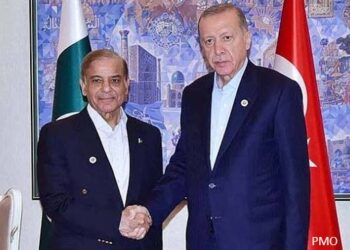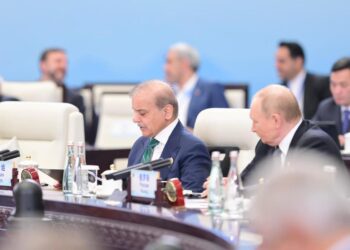Sarosh Mustafa
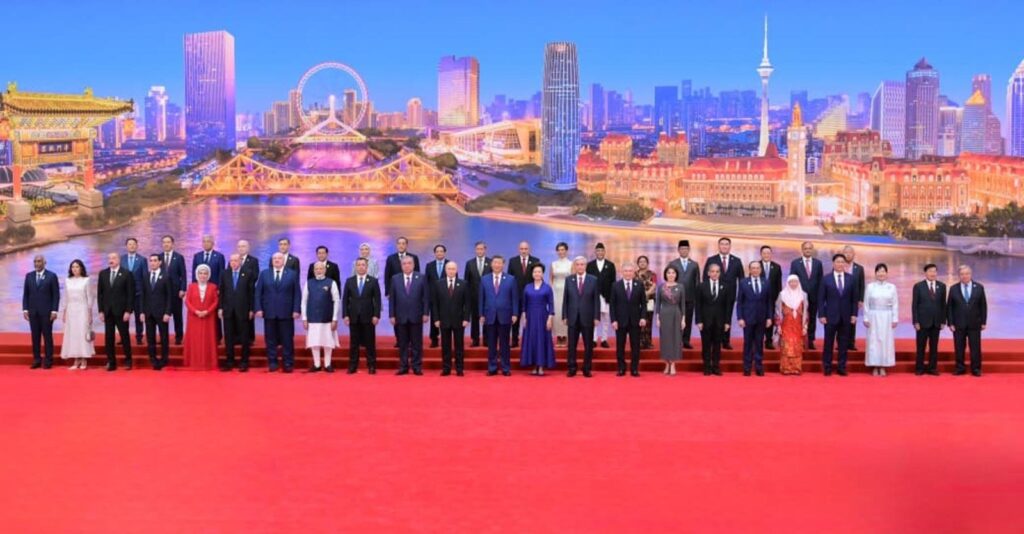
Tianjin: The 25th Shanghai Cooperation Organisation (SCO) Summit, held in Tianjin, China from August 31 to September 1, 2025, brought together leaders from across Eurasia at a time of shifting global power. Against the backdrop of intensifying rivalries with the West, the summit became a platform not only for Beijing and Moscow to promote their vision of a multipolar order, but also for Pakistan to project itself as a credible voice for dialogue, economic integration, and climate resilience.
Xi and Putin’s Blueprint for a Post-Western Century
Chinese President Xi Jinping opened the summit by denouncing “Cold War mentalities” and urging the SCO to embrace true multilateralism. He called for unity against sanctions, investment in artificial intelligence, and the creation of new financial mechanisms to reduce dependency on the dollar.
Russian President Vladimir Putin, echoing Xi, accused NATO states of fueling global instability and positioned the SCO as a counterweight to Western blocs. Together, Xi and Putin outlined a Eurasian-led vision of global governance.
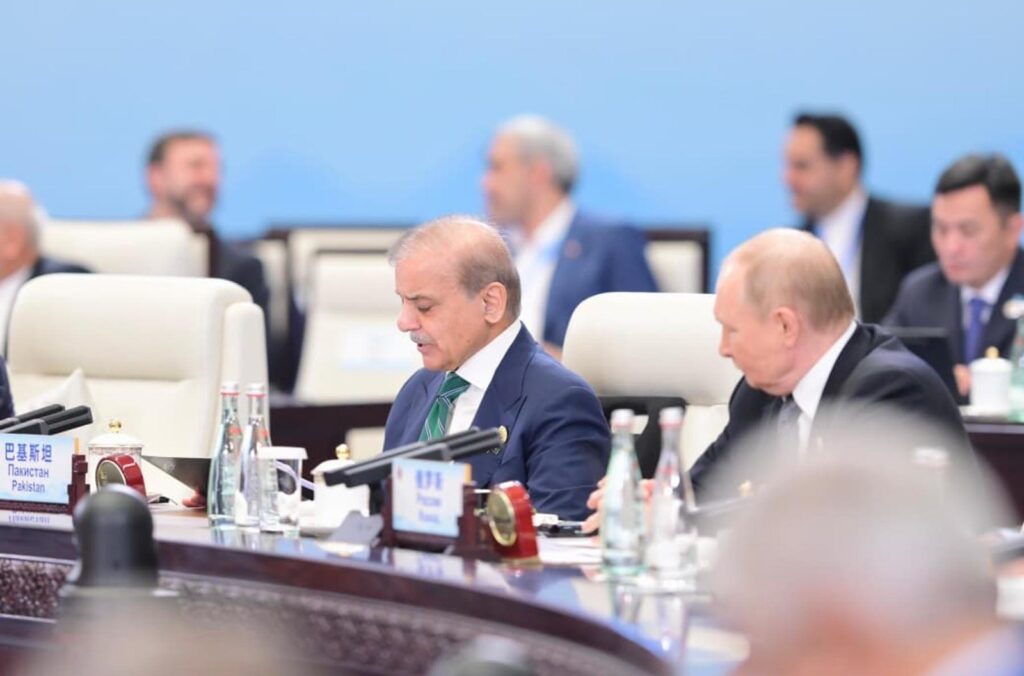
Pakistan: From Participant to Protagonist
Prime Minister Shehbaz Sharif underscored Pakistan’s evolving role within the SCO, addressing terrorism, regional disputes, and climate challenges:
- On Terrorism: He condemned all forms, including state-sponsored variants, demanding accountability for external involvement in attacks on Pakistan.
- On Disputes: Referring to the Indus Waters Treaty, he urged for uninterrupted access to resources and called for dialogue to resolve South Asian disputes.
- On Climate: Highlighting Pakistan’s devastating floods, he appealed for collective resilience strategies and acknowledged China and SCO partners for their disaster relief support.
Dar’s Institutional Reform Drive
Deputy Prime Minister and Foreign Minister Ishaq Dar pushed for institutional reforms to strengthen the SCO’s global standing:
- English as a third official language;
- Expanded SCO Secretariat authority;
- Promotion of national currencies and regional settlement systems;
- Integration of the China–Pakistan Economic Corridor (CPEC) into SCO’s connectivity framework.
Dar positioned Pakistan as a reformist force, broadening the SCO’s mandate beyond security to development and finance.
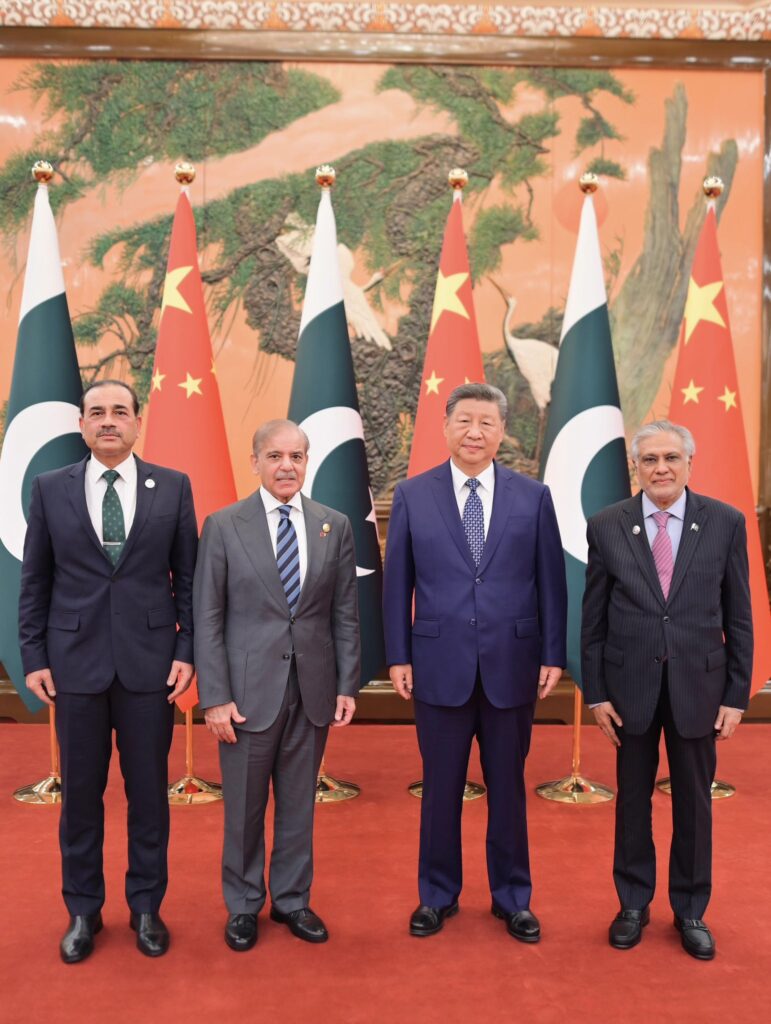
Connectivity, Soft Power, and New Partnerships
Pakistan used the summit for bilateral diplomacy:
- Iran: Reaffirmed historic solidarity and emphasized diplomacy.
- Armenia: Established formal diplomatic relations, ending decades of estrangement.
- China: At Tianjin University, Shehbaz praised Chinese support and called Pakistani students “torchbearers of friendship.”
The Global South’s Voice
Pakistan aligned itself with smaller SCO members, spotlighting development inequality, infrastructure gaps, and climate resilience, positioning itself as a strong advocate for the Global South.
Contradictions and Possibilities
Despite unity, divergent ambitions were evident:
- China seeks to anchor Eurasia’s economy.
- Russia seeks legitimacy amid Western isolation.
- India continues balancing East and West.
- Pakistan acts as mediator and reformist.
Conclusion: Towards a Multipolar Order
The Tianjin SCO Summit signaled more than routine diplomacy—it marked a turning point in global geopolitics. While Beijing and Moscow drove the vision of a multipolar world, Pakistan’s proactive diplomacy elevated its standing as a serious stakeholder shaping the bloc’s future.
Whether these ambitions translate into lasting institutions or remain rhetorical will determine the SCO’s role in defining the multipolar century.

